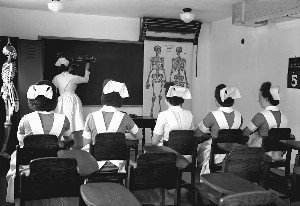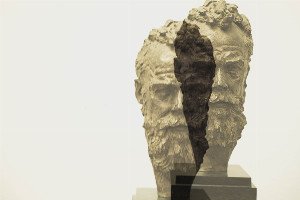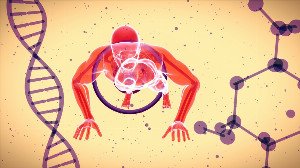Pascoal Farinaccio
Trauma paterno, melancolia e depressão
Introduction
Trauma paterno, melancolia e depressão. Analisa trauma paterno, melancolia e depressão em obras de Xerxenesky e Schwarcz. Explora a herança judaica da perseguição nazista sob perspectiva psicanalítica, focando em autodescobrimento e cura.
Abstract
Propõe-se aqui a análise e interpretação de duas obras literárias brasileiras contemporâneas, a saber, o romance de Antônio Xerxenesky, Uma tristeza infinita (2021), e o relato autobiográfico de Luiz Schwarcz, O ar que me falta (2021). Procura-se esclarecer, com apoio em estudos psicanalíticos, como, em ambas as obras, dá-se a apropriação pelos narradores de uma herança paterna traumática relativa à experiência judaica durante a perseguição nazista na Segunda Guerra Mundial. A personagem do romance, um psiquiatra, sofre de melancolia aguda, ao passo que o editor que escreve seu relato de memórias combate uma depressão bipolar. O cuidado com a doença, que segue paralelo a uma longa jornada de autodescobrimento, pressupõe para os protagonistas uma reinvenção pessoal do legado do pai, a atenção às relações afetivas da vida cotidiana e busca na representação do sofrimento psíquico um efeito cognitivo e terapêutico.
Review
The article, "Trauma paterno, melancolia e depressão," proposes a compelling interdisciplinary analysis at the intersection of Brazilian contemporary literature, psychoanalysis, and historical trauma. The abstract clearly outlines the study's focus: an interpretation of two significant Brazilian literary works, Antônio Xerxenesky's *Uma tristeza infinita* (2021) and Luiz Schwarcz's *O ar que me falta* (2021). The central premise revolves around how the narrators of these texts appropriate a traumatic paternal legacy, specifically linked to the Jewish experience during Nazi persecution in World War II. This immediately sets a rich and pertinent investigative framework, promising a deep dive into the psychological and cultural reverberations of historical atrocity. Utilizing a psychoanalytic lens, the research aims to illuminate the complex psychic suffering depicted in these narratives. The abstract highlights specific characterological manifestations: a psychiatrist suffering from acute melancholia in Xerxenesky's novel, and an editor battling bipolar depression in Schwarcz's autobiographical account. The authors posit that the protagonists' journey of self-discovery, parallel to their struggle with mental illness, necessitates a personal reinvention of their fathers' legacies. Crucially, this process is framed by an emphasis on daily affective relationships and the inherent cognitive and therapeutic power found in representing psychic suffering. This approach suggests a nuanced exploration of how intergenerational trauma is processed, transformed, and potentially healed through narrative and personal engagement. This study holds significant promise for scholars across several fields, including literary criticism, psychoanalytic theory, trauma studies, and Holocaust studies. By examining the enduring impact of a specific historical trauma through the highly personal and often painful lens of paternal legacy, the article offers valuable insights into the mechanisms of intergenerational transmission of suffering and resilience. The focus on the therapeutic and cognitive effects of artistic representation of psychic pain further underscores the article's relevance, suggesting not only an academic contribution but also a broader commentary on the role of literature in processing collective and individual histories. The chosen works and the proposed analytical framework suggest a timely and impactful contribution to understanding the complex interplay between memory, identity, and mental health in the context of profound historical adversity.
Full Text
You need to be logged in to view the full text and Download file of this article - Trauma paterno, melancolia e depressão from O Eixo e a Roda: Revista de Literatura Brasileira .
Login to View Full Text And DownloadComments
You need to be logged in to post a comment.
Top Blogs by Rating
The Invisible Load: Unveiling...
By Sciaria
The Healing Power of "Ahhh": M...
By Sciaria
Unlocking Life's Source Code:...
By Sciaria
Favorite Blog
The Unspoken Wisdom: Embracing...
By Sciaria
The Spiritual Shelf Life: Navi...
By Sciaria
Life's Grand Algorithm: Is Bio...
By Sciaria





